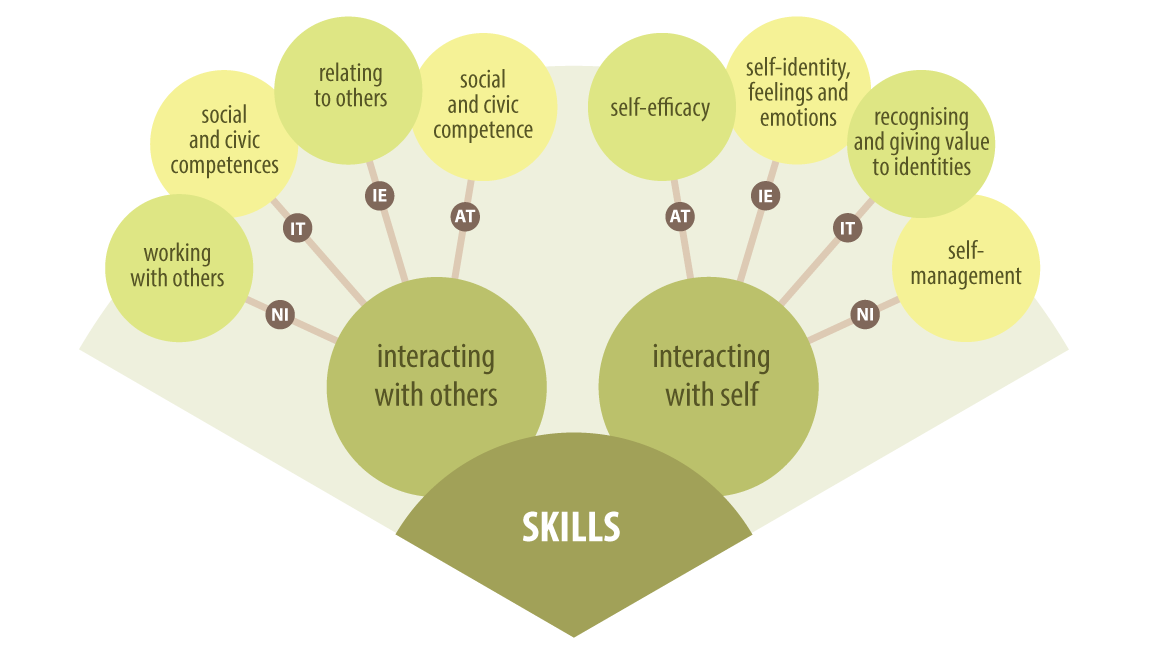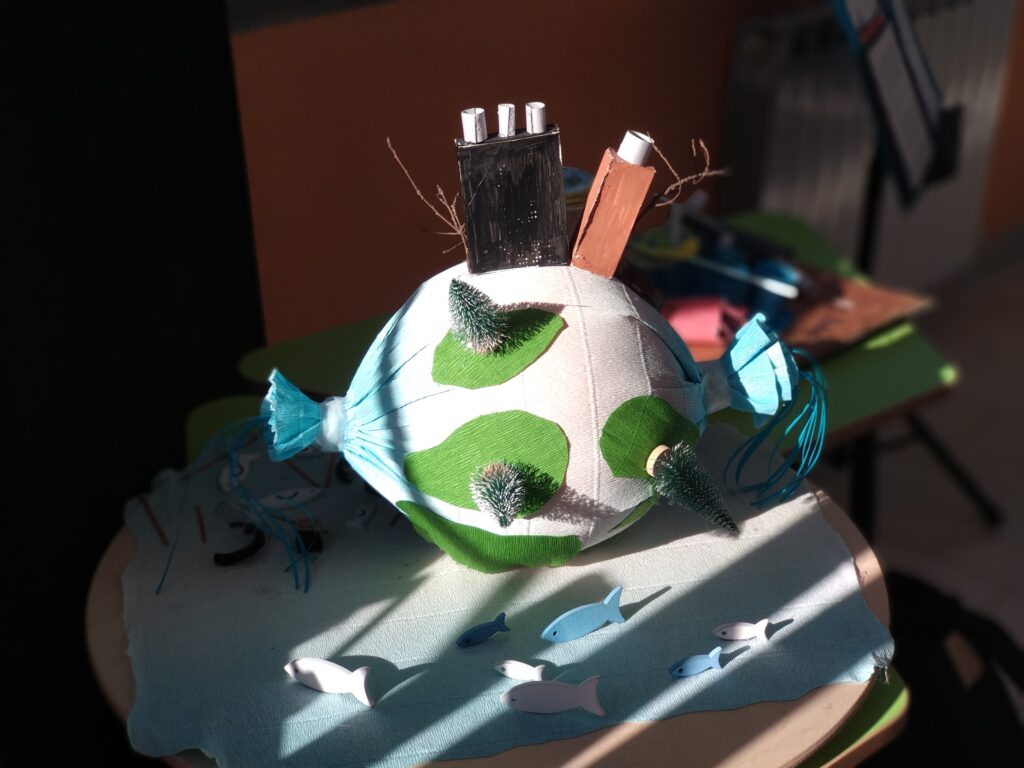Skills Development

Our starting point within our primary classrooms is that we need to consider that our students are still developing the necessary skills to be able to engage in genuine dialogue and debate and to work collaboratively and effectively with each other. Many of the skills connected to our competence framework, based on the curricular priorities in each country, focus on how we can best listen to each other, encourage discussion, be critical of ideas (and not each other…) promote ways of negotiating and tease out differences of opinions.
Within this section, teachers, principals and their students explain how by being part of the CEPNET project has helped in the development of specific skills, especially in relation to how our students worked collaboratively within their groups, as well as how they became more self organised at an individual level.
Interacting with Others
These are skills that can be taught through the CEPNET phases. More importantly these skills can also be reflected upon by the students and teacher through group discussion at specific points of transition between the phases.
During the project, we ran two cycles of these CEPNET phases (dialogue-research-sharing) and conducted evaluation work with the students, teachers and parents. Teachers reflected on how they had noticed changes with some of their students as the approach became embedded in their classrooms. According to one of our teachers:
“Already at the end of the first cycle, I had noticed that in a good number of children extremely proactive attitudes towards the chosen activities had emerged. These attitudes also emerged in other activities and disciplines. In the second cycle, with the proposal of more structured, organised topics, these new skills were enhanced. During the social dialogues or during the final part of the project in which the children linked their work to the 2030 Agenda, interesting moments of reflection, evaluation, proposals and solutions emerged. They proved to be more mature, autonomous and critical in what they presented. This consequently developed interesting moments of interaction and confrontation with others. It denoted a strong responsibility in the project carried out and presented to their peers.”
Teacher,
The ability to work with students in other classrooms also enhanced skills development associated with collaborative working. These online dialogues also offered regular opportunities to reflect on how they were getting on. From another teacher in the evaluation work:
“Yes, the children have acquired new skills through this. Great experience communicating online in English with the Italian students!”
Teacher
One of our teachers explains some more about how the individual student take to the group work, given that they have taken the lead in terms of the focus of their project work.
Once the discussion and dialogue phase was coming to an end, usually after 4 sessions, the students were beginning to think of their “big interest” topic. They would coalesce around topics of interest as well as through friend groups. The second phase of the project was about taking these topics, framing them as research questions and then carrying out their research. As they became more engaged with different topics, tangents and issues of substance to them, they began to conceive how their project would eventually look. This allowed the groups to develop their own identity, as the students could challenge each other about their next steps. Some groups decided that they wanted to take action, organise fundraising activities, carry out a clean up in their communities. Other groups focused on gathering primary data through interviews and surveys. Again, the groups made use of the skill sets already in place and in many instances, the “quiet” student became the leader.
In the following project, the group decided to focus on the issue of marine pollution and its impact on their communities. They carried out research and engaged with a range of NGOs to collect data. Each member of the group was given a different task and they checked back in with each other in the classroom sessions with updates. They decided to also carry out a beach clean up and these actions are documented below. The group successfully managed these steps of identifying a topic of interest, carrying out research and then taking action. They shared their work with the NGOs and they presented their project to their school community and to their partner schools in the other countries. This experience of presenting to their peers represented a challenge for some of the group, but they supported each other to ensure that they could share their work with each person’s contribution fully recognised. By sharing and rotating the leadership tasks, their ability to relate with each other was enhanced.
Interacting with Self
In many ways, CEPNET allowed for each student engage in tasks associated with problem based learning, both within their groups and at an individual level. The students were centrally involved in working out their research question or hypothesis, before coming to their own understanding of how they should understand it and then deal with it. As they were each allowed to determine their own “big interest”, each student had to drive their own learning and then structure how they would approach defining the problem to be solved.
Students were supported by their teachers (and their peers in each school) to be come personally effective, taking more responsibility for their learning and becoming more autonomous as learners.
As they began to work on their research projects, they needed to plan, set goals and then regularly review progress, both at an individual and at a group level. They were encouraged to reflect on their own learning and to work with each other to review the work of their peers. By giving and receiving feedback, reviewing progress towards their research project outcomes, they could understand their achievements, as well as identify where they might need to get more involved to manage their way to the end of the project.
The following group worked quite independently of each other as they created this model of a polluted planet. They decided on an artistic and creative response to represent their understanding on issues relating to the climate crisis and specifically marine pollution. On one side of the planet, there is chaos, while on the other there is an idealised future of balance and respect for nature.

The children explained that they were able to listen to each other’s points of view and ask critical questions. As part of the evaluation, they also highlighted that they were willing to change their minds and see things from other perspectives.
A teacher explains how these benefits worked at the individual level within the classroom and how the ongoing development of these skills through the project phases had a transformative impact as the students moved to other parts of the curriculum.
Other teachers also indicated such outcomes within their classrooms
Cepnet was a great opportunity to demonstrate many independent, self motivating and social skills
The Cepnet project addresses the main curriculum areas while instrinsically developing thinking skills and personal capabilities in a fun interactive way
Teacher

